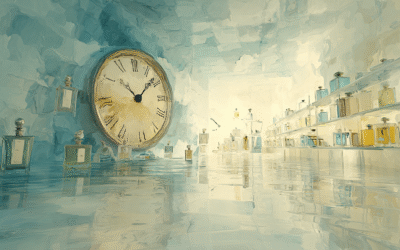From the sonnets of Shakespeare to the molecular cascades of neurotransmitters, love and sex have captivated minds across disciplines for millennia. When Plato wrote of love as a “serious mental disease” in Phaedrus, he inadvertently presaged modern neuroscientific findings about romantic love’s striking similarities to addictive behaviors. This exploration weaves together threads from neuroscience, evolutionary biology, psychology, literature, and philosophy to understand how love and sexual desire intoxicate both brain and behavior.
The Neurochemical Symphony
The brain in love performs a complex orchestration of neurotransmitters and hormones, each playing its unique part in the grand composition of human attraction and bonding. This biological symphony shares remarkable similarities with states of drug-induced euphoria, suggesting that nature has hijacked the brain’s reward circuitry to ensure the perpetuation of our species.
The Conductor: Dopamine
At the heart of romantic attraction lies dopamine, the maestro of motivation and reward. This neurotransmitter, which floods the nucleus accumbens and ventral tegmental area during both drug use and romantic encounters, orchestrates the intense pleasure and craving that characterize early-stage love. The dopaminergic system, having evolved primarily to motivate survival behaviors, now serves as the biological basis for what poets have long called “love’s sweet torture.”
The same neural pathways that once helped our ancestors distinguish beneficial foods from poisons now help us become “addicted” to our romantic partners. Functional MRI studies reveal that viewing photos of one’s beloved activates these ancient reward circuits with an intensity comparable to cocaine administration, lending scientific credence to the age-old metaphor of love as an intoxicant.
The Emotional Ensemble
While dopamine conducts, a complex ensemble of other neurochemicals creates love’s rich emotional texture. Oxytocin, nicknamed the “bonding hormone,” emerges from the hypothalamus during intimate contact, fostering trust and attachment. This same molecule, interestingly, plays a crucial role in maternal bonding across mammalian species, suggesting that romantic love may have evolved by co-opting neural circuits originally dedicated to parent-child attachment.
Phenylethylamine (PEA), structurally similar to amphetamines, contributes to the exhilarating rush of new love. This chemical similarity explains why chocolate, rich in PEA, has long been associated with romance across cultures. Meanwhile, norepinephrine sharpens attention and memory formation, explaining why lovers often remember minute details about their early encounters with unprecedented clarity.
The Evolutionary Stage
From an evolutionary perspective, love’s intoxicating effects serve as nature’s clever trick to ensure reproduction and offspring survival. The temporary impairment of judgment often associated with romantic love—which parallels the effects of actual intoxicants—may have provided our ancestors with the necessary courage to overcome social barriers and form lasting pair bonds.
The drop in serotonin levels during early-stage love, creating an obsessive-compulsive state similar to OCD, likely evolved to ensure mate guarding and reproductive success. This neurochemical change helps explain why Shakespeare’s lovers often exhibit what modern psychiatry would classify as obsessive behaviors—from Romeo’s melodramatic pining to Ophelia’s descent into madness.
The Psychological Performance
The intoxicating effects of love and sex manifest in fascinating psychological phenomena that have captured the attention of both scientists and artists throughout history. The “love is blind” effect, scientifically termed “positive illusion,” represents a dopamine-mediated override of the brain’s critical assessment facilities. This temporary impairment of judgment, while potentially risky, may serve to cement bonds during the crucial early stages of relationship formation.
The Addiction Parallel
The similarity between romantic love and addiction extends beyond mere metaphor. Both states involve:
- Intense craving for the object of desire
- Withdrawal symptoms upon separation
- Tolerance development requiring escalating “doses” of contact
- Relapse risk long after the relationship ends
This parallel helps explain why ancient Greek philosophers often warned against love’s power to override reason, much as they cautioned against wine’s intoxicating effects. Modern addiction medicine increasingly recognizes these similarities, leading to new therapeutic approaches for both substance dependence and pathological attachment patterns.
Cultural Manifestations
The intoxicating nature of love and sex has left an indelible mark on human culture, from ancient mythology to modern cinema. The Greek god Eros was often depicted as shooting arrows that would make victims “love-drunk,” while medieval Arabic poetry frequently compared love’s effects to those of wine, even in cultures where alcohol was forbidden.
This universal recognition of love’s power to intoxicate spans cultures and epochs, suggesting that humans have long recognized the parallel between romantic attraction and other forms of intoxication. Modern neuroscience simply provides the biological explanation for what artists and philosophers have observed for millennia.
The Dark Side of Love’s Intoxication
Just as the pleasure of intoxicants can lead to addiction, love’s neurochemical rewards can foster unhealthy attachment patterns. Love addiction and sex addiction represent the extreme manifestations of these natural reward systems gone awry. These conditions, while controversial in psychiatric circles, illuminate the fine line between normal romantic attachment and pathological dependence.
The withdrawal symptoms experienced during breakups—including physical pain, anxiety, and obsessive thoughts—mirror the withdrawal patterns seen in substance dependence. This similarity extends to the neurological level, with both romantic rejection and drug withdrawal involving similar brain regions and neurochemical disruptions.
Therapeutic Implications
Understanding love’s intoxicating effects has important implications for mental health treatment. Therapists increasingly recognize that the end of a relationship can trigger withdrawal symptoms requiring similar coping strategies to those used in addiction recovery. These might include:
- Mindfulness practices to manage craving states
- Social support networks to provide healthy attachment alternatives
- Cognitive behavioral techniques to address obsessive thoughts
- Physical exercise to naturally boost depleted neurotransmitter levels
Navigating Love’s Intoxication
The parallels between romantic love and intoxication need not imply that love is dangerous or should be avoided. Rather, this understanding can help individuals navigate relationships more consciously, recognizing when the neurochemical cocktail of early romance might be clouding judgment or leading to unhealthy behavioral patterns.
Modern society’s challenge lies in balancing the beautiful intoxication of love with the need for rational decision-making in an increasingly complex world. Perhaps the solution lies not in fighting love’s intoxicating effects but in developing a better understanding of them, much as ancient philosophers advocated for moderation rather than abstinence in matters of the heart.
The intoxicating effects of love and sex represent a fascinating intersection of biology, psychology, and cultural expression. By understanding these effects through multiple disciplinary lenses, we gain a richer appreciation for both the science behind romantic attraction and the timeless human experiences captured in art and literature throughout history.
This deeper understanding doesn’t diminish love’s magic but rather adds new layers of appreciation for the elegant systems evolution has crafted to perpetuate our species. As we continue to unravel the mysteries of romantic attachment, we may find that love’s intoxicating effects represent one of nature’s most sophisticated achievements—a neurochemical symphony that moves us to create bonds essential for human flourishing.



